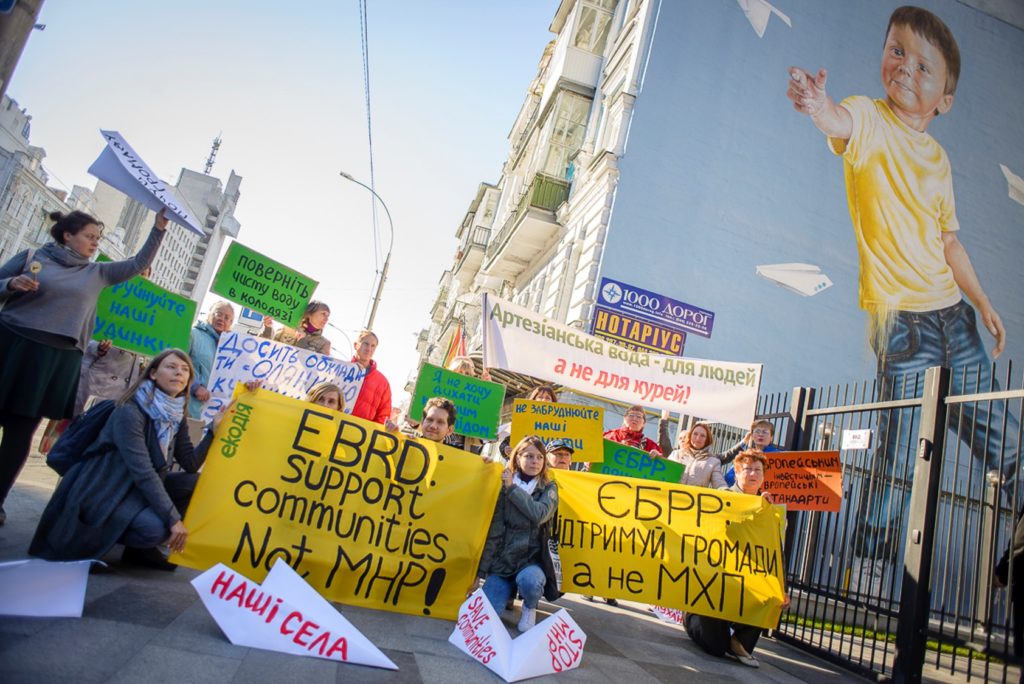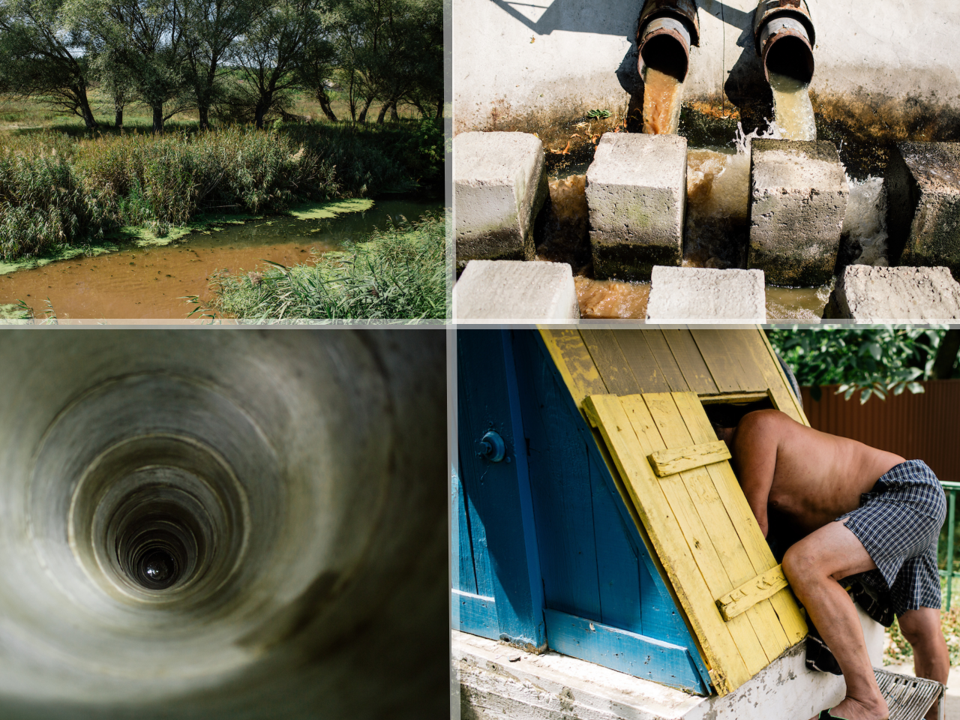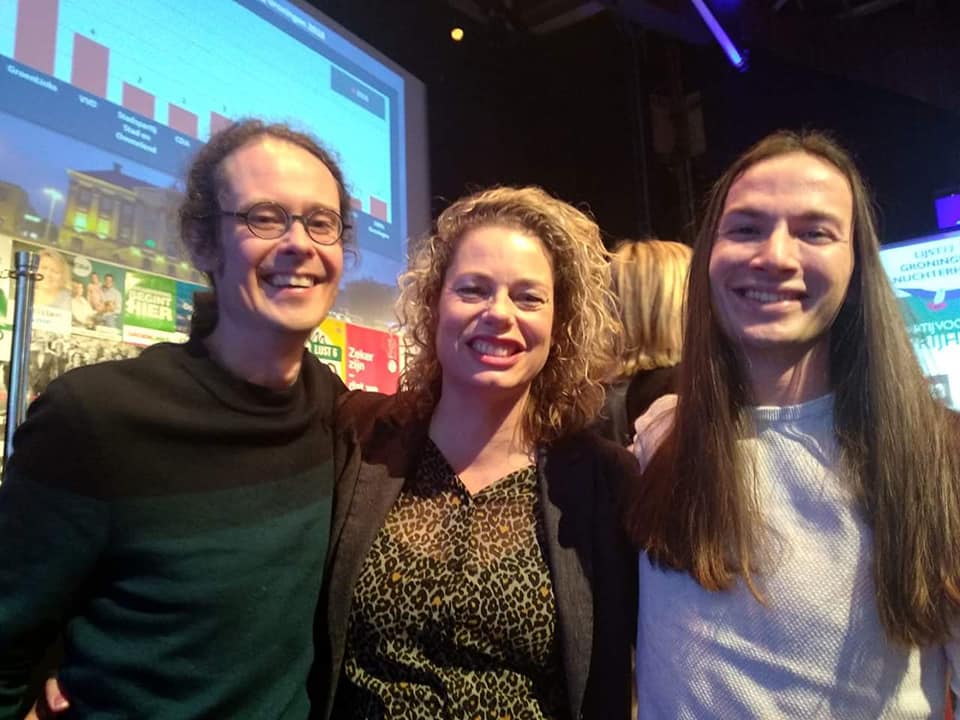Worldlog Esther Ouwehand 27 Novembro 2018
The international movement of animal rights is in a breakthrough phase. Everywhere, more and more people are standing up against the injustice that is being done to animals and our planet. This movement is also getting increasingly more media attention. I recently spoke with a journalist of the Financial Times about the necessity of a politics based on compassion. Do you remember that in my previous worldlog I expressed my admiration for the new animal-friendly politicians and local animal protectors in Moldavia, the poorest country of Europe? Apparently, those super heroes are getting increasingly more attention from the Moldavian national media, and they are given the chance to educate people about the horrors of factory farming and to tell them about how to do things differently. It fills me with hope that more and more people, all over the world, are standing up in public for animals and are spreading awareness as a result. Even in the poorest countries. Because those people already know: compassion doesn’t cost anything.

Ukrainians object to factory farming
Also people in Ukraine are objecting to destructive factory farming. Increasingly more citizens suffer health complaints and see their environment being destroyed by new giga stables where thousands of animals are kept under horrific circumstances. During our international conference this summer in The Hague, conservationists and environmentalists of the Ukrainian organisation Ecoaction told us everything about the horrendous effects of growing factory farming in their country. At the same time, they told us a reassuring story about how they, together with local people, do everything possible to stop this destructive industry. The Guardian wrote an interesting article about it.

Living environment polluted by factory farming in Ukraine
But, unfortunately, these Ukrainian citizens and environmentalists also have to fight against international financial institutions and against the development and trade policy of the European Union (EU). Currently, a large part of development funds and funds of Western companies go to mega stables in Ukraine. The Party for the Animals has already brought up the Dutch role in these incorrect investments in the Lower House. A couple of years ago, we already warned that the controversial association treaty between the EU and Ukraine would particularly entail a great deal of trouble: not just for animals, nature and the environment, but also for many people in Ukraine. The Dutch people voted against the treaty, but the Dutch government again buried its head in the sand and opened up its doors to factory farms, which do not even meet the already weak European standards. Who turn out to be the beneficiaries in Ukraine? Mainly a handful of very rich Ukrainians and intensive factory farms, while the population has to bear the societal costs. Unacceptable.
So many people in Great Britain have now stopped consuming meat and dairy products that they do not have enough chef cooks to meet the new demand for vegetable dishes. We have filed several motions in the Lower House to include more veg(an) food in Dutch chef cook trainings, so that trainings will better meet the market demand.
We also achieved a breakthrough this month: thanks to our pleadings for more vegetable foods at our government institutions, the Dutch Ministry of Education, Culture and Science has opted for vegetarian food by default. In future, the ministry will by default only serve vegetarian or vegan food. Meat will only be served if people specifically ask for it. On our way to a sustainable, animal-friendly food culture.
Even the best-known sausage maker of the Netherlands is now convinced that the (near) future will be vegetal. This traditional meat company introduced four new products and did so perfectly: the products are 100% vegetable and also palm oil free. Perfect for animals, the environment and for all of us in the end.

Party for the Animals team in Groningen celebrates its win in the municipal elections
And finally, some more fantastic election news: last week, the Party for the Animals tripled its seats in the Dutch municipality of Groningen! It is incredibly important that we make our powerful voice heard for animals and our planet, both internationally and locally. Our municipal council party group of Alkmaar, for example, recently set a good example: this month, they decided that in future all vet costs for stray animals will be paid by the municipality. We also continue to fight internationally because animal rights, nature and the environment know no boundaries.
On 2 December next, our Spanish sister party PACMA will participate in the regional elections in Andalusia. 6.5 million inhabitants can then vote for a more beautiful future for our planet. Good luck, PACMA team!
Greetings!
Esther Ouwehand
Parliamentary leader of the Dutch Party for the Animals in the Lower House
O movimento internacional de direitos dos animais está em uma fase de avanço. Em todos os lugares, mais e mais pessoas estão a enfrentar a injustiça que está sendo feita aos animais e ao nosso planeta. Esse movimento também está a receber cada vez mais atenção da mídia. Falei recentemente com um jornalista do Financial Times sobre a necessidade de uma política baseada na compaixão. Você se lembra de que, no meu post anterior, expressei minha admiração pelos novos políticos simpáticos à causa animal e os protetores de animais na Moldávia, o país mais pobre da Europa? Aparentemente, esses super-heróis estão a receber cada vez mais atenção da mídia nacional da Moldávia, e eles têm a chance de informar as pessoas sobre os horrores da agricultura industrial e de lhes dizer como fazer as coisas de maneira diferente. Isso me enche de esperança de que mais e mais pessoas, em todo o mundo, estão a se pronunciar em público em favor dos animais e estão a espalhar a conscientização como resultado. Mesmo nos países mais pobres, pois essas pessoas já sabem que compaixão não custa nada.

Ucranianos se opõem à agricultura industrial
Na Ucrânia, também, pessoas estão a se opor a agricultura industrial destrutiva. Cada vez mais cidadãos sofrem com queixas de saúde e vêem seu entorno ser destruído por novos estábulos onde milhares de animais são mantidos sob circunstâncias horríveis. Durante nossa conferência internacional neste verão em Haia, conservacionistas e ambientalistas da organização ucraniana Ecoaction nos contaram tudo sobre os horrendos efeitos da crescente produção industrial em seu país. Ao mesmo tempo, eles nos contaram uma história reconfortante sobre como eles, junto com a população local, fazem todo o possível para deter essa indústria destrutiva. The Guardian escreveu um artigo interessante sobre isso.

Meio-Ambiente poluído pela agricultura industrial na Ucrânia
Mas, infelizmente, esses cidadãos ucranianos e ambientalistas também têm que lutar contra instituições financeiras internacionais e contra o desenvolvimento e a política comercial da União Européia (UE). Atualmente, uma grande parte dos fundos de desenvolvimento e fundos de empresas ocidentais vai para mega estábulos na Ucrânia. O Partido para os Animais já levantou a questão do papel holandês nestes terríveis investimentos na Câmara dos Deputados. Há dois anos, já avisámos que o controverso tratado de associação entre a UE e a Ucrânia envolveria particularmente um grande número de problemas: não apenas para os animais, a natureza e o ambiente, mas também para muitas pessoas na Ucrânia. O povo holandês votou contra o tratado, mas o governo holandês enterrou novamente a cabeça na areia e abriu as portas para fazendas industriais, que nem sequer atendem aos já fracos padrões europeus. Quem acaba por ser os beneficiários na Ucrânia? Principalmente um punhado de ucranianos e fazendeiros muito ricos, enquanto a população tem que arcar com os custos sociais. Inaceitável.
Muitas pessoas na Grã-Bretanha pararam de consumir carne e laticínios que não há chefs suficientes para atender à nova demanda por pratos de vegetarianos. Enviamos várias moções à Câmara para incluir mais pratos veganos em treinamentos de chefs cozinheiros na Holanda, para que assim, a demanda do mercado seja atendida.
Nós também alcançamos um grande avanço neste mês: graças às nossas petições por mais alimentos vegetais em nossas instituições governamentais, o Ministério Holandês de Educação, Cultura e Ciência optou por comida vegetariana como norma. No futuro, o ministério, como norma, só servirá comida vegetariana ou vegana. A carne só será servida se as pessoas, especificamente, pedirem. Estamos a trilhar o caminho para uma cultura alimentar sustentável e amiga dos animais.
Até mesmo o mais conhecido fabricante de salsichas da Holanda está convencido de que o (próximo) futuro será vegetal. Esta tradicional companhia de carnes introduziu quatro novos produtos e o fez perfeitamente: os produtos são 100% vegetais e também livres de óleo de palma. No fim, isto é perfeito para os animais, o meio ambiente e para todos nós.

A equipa do Partido para os Animais em Groningen comemora sua vitória nas eleições municipais.
E finalmente, algumas notícias fantásticas sobre as eleições: na semana passada, o Partido para os Animais triplicou seus lugares no município holandês de Groningen e nosso partido-irmão australiano Animal Justice Party conseguiu ganhar um assento durante as eleições estaduais de Victoria! É extremamente importante que façamos a nossa poderosa voz ser ouvida pelos animais e pelo nosso planeta, tanto internacional como localmente. O nosso grupo do conselho municipal de Alkmaar, por exemplo, deu recentemente um bom exemplo: este mês, decidiram que, no futuro, todos os custos do veterinário para os animais de rua serão pagos pelo município. Continuamos a lutar internacionalmente porque os direitos dos animais, a natureza e o meio ambiente não conhecem fronteiras.
No próximo dia 2 de dezembro, nosso partido irmão espanhol PACMA participará das eleições regionais na Andaluzia. 6,5 milhões de habitantes poderão votar em um futuro mais bonito para o nosso planeta. Boa sorte, equipa PACMA!
Saudações!
Esther Ouwehand
Presidente do grupo parlamentar do Partido para os Animais dos Países Baixos na Câmara dos Deputados